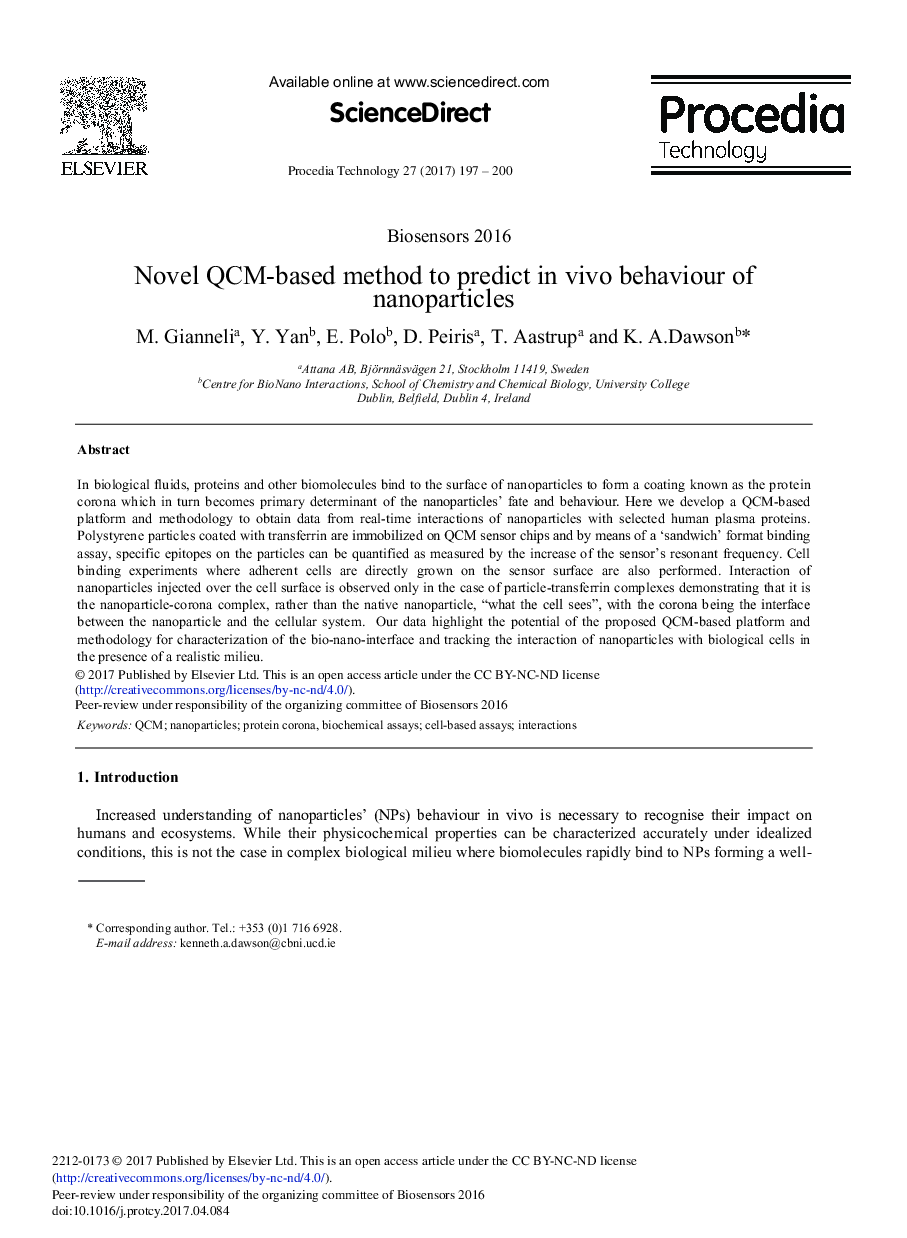| Article ID | Journal | Published Year | Pages | File Type |
|---|---|---|---|---|
| 4962407 | Procedia Technology | 2017 | 4 Pages |
In biological fluids, proteins and other biomolecules bind to the surface of nanoparticles to form a coating known as the protein corona which in turn becomes primary determinant of the nanoparticles' fate and behaviour. Here we develop a QCM-based platform and methodology to obtain data from real-time interactions of nanoparticles with selected human plasma proteins. Polystyrene particles coated with transferrin are immobilized on QCM sensor chips and by means of a 'sandwich' format binding assay, specific epitopes on the particles can be quantified as measured by the increase of the sensor's resonant frequency. Cell binding experiments where adherent cells are directly grown on the sensor surface are also performed. Interaction of nanoparticles injected over the cell surface is observed only in the case of particle-transferrin complexes demonstrating that it is the nanoparticle-corona complex, rather than the native nanoparticle, “what the cell sees”, with the corona being the interface between the nanoparticle and the cellular system. Our data highlight the potential of the proposed QCM-based platform and methodology for characterization of the bio-nano-interface and tracking the interaction of nanoparticles with biological cells in the presence of a realistic milieu.
